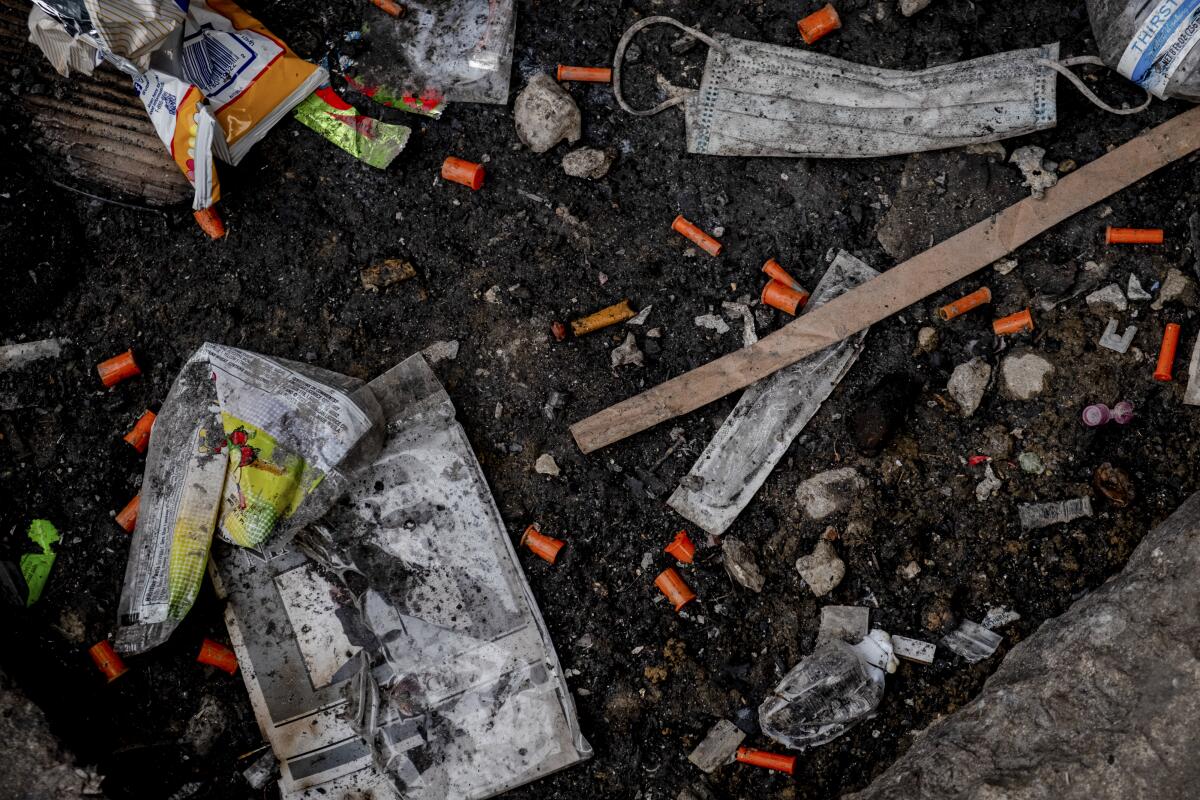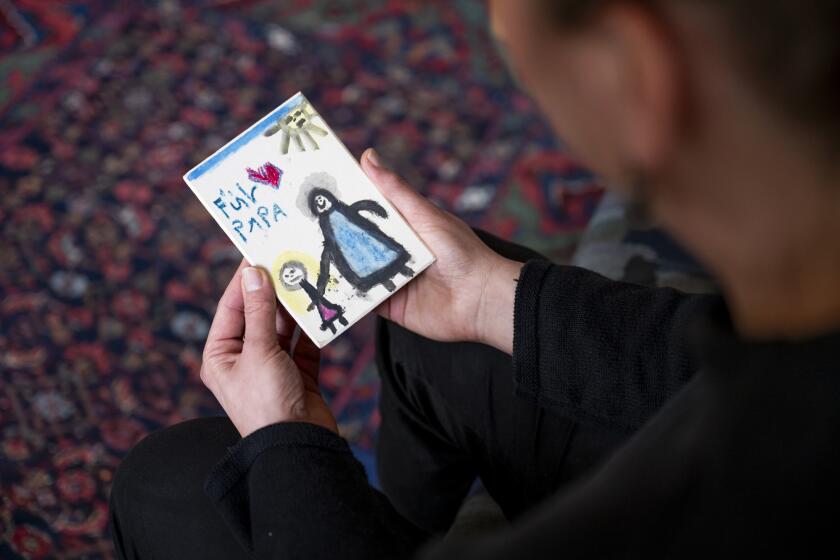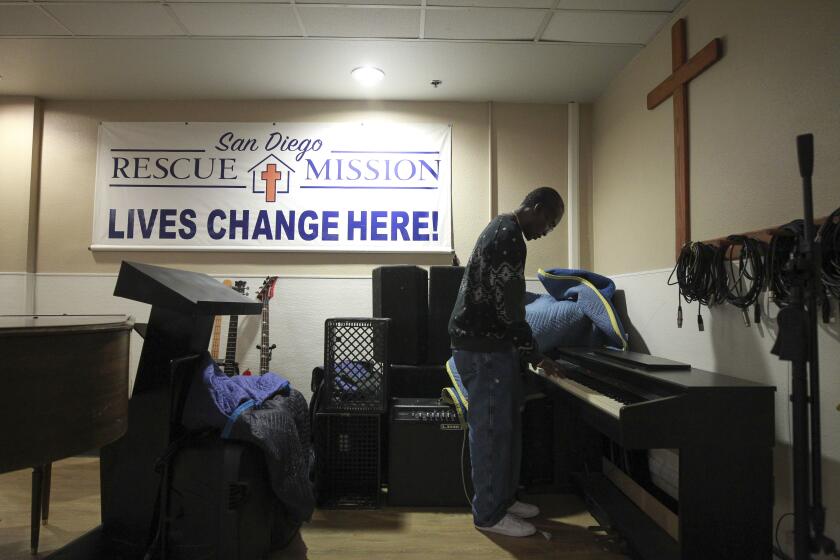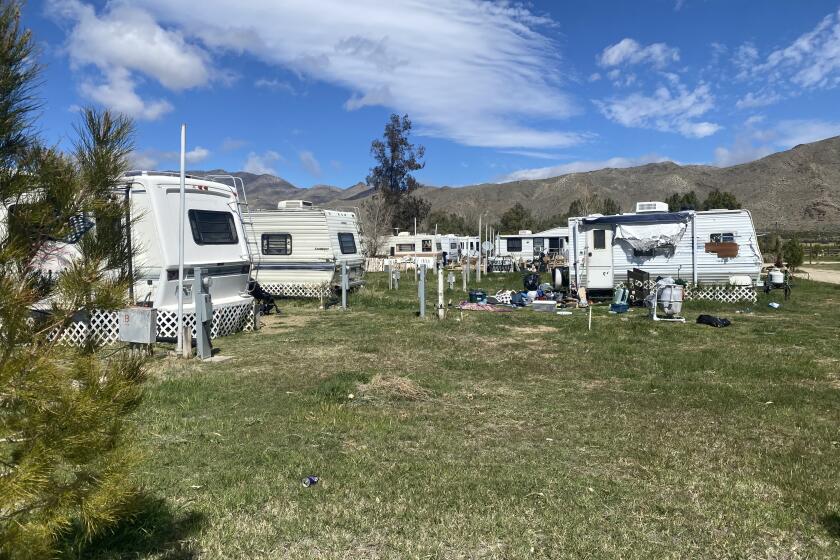Opinion: After the high goes down, the root pain of addiction remains. Here’s how we can all help.

Chez is the founder and executive director of We See You San Diego, a nonprofit providing services that include weekly dinners and street outreach to the homeless while offering crucial free assistance in treatment and recovery. She lives in Mission Valley.
“Here’s the key. I can’t do this anymore. Take me to a recovery program.” A woman who had become homeless a decade prior uttered these words during a moment of clarity amidst a drug-induced psychosis.
Every Tuesday evening, We See You San Diego hosts a dinner party for hundreds of people experiencing homelessness, each with their own story of how they ended up on the streets of San Diego. During the party, we serve healthy meals as a live band plays. From the stage, we extend a weekly invitation to anyone who is ready to enter private medical detox followed by long-term inpatient recovery completely free of charge.
The lines etched in the woman’s face speak to her story of lifelong trauma and a meth addiction that has stolen more than a decade of her life. Despite the harshness of her 60 years of life, she has a gentleness to her. In 2022, she received a motel voucher under the state of California’s “Housing First” program. On one cold Tuesday night in Pacific Beach, she said yes as I promised to keep the key to her single-room occupancy unit in my purse while she sought treatment.
But housing is the solution to homelessness, right?
For the past seven years, rain or shine, our team of 75 volunteers has hosted dinner parties where relationships are built with people who live on the streets of San Diego. Our volunteers provide rides to medical appointments, have conversations over coffee, provide clothes and visit people in jail.
I invited Amy Reichert to one of We See You’s outreach dinner parties, since she is a community leader who has advocated for county funds to be spent on increasing shelter beds and taking an evidence-based approach to chronic homelessness with treatment and recovery programs. Right now, Housing First funds prohibit taxpayer funds from being used for addiction or mental health treatment.
Amy asked me how to share with people who claim that addiction and mental illness are not one of the root causes of chronic homelessness. Based on my experience, I responded, “It is rare and surprising to get to know someone in the demographic of individuals who are chronically homeless, living in encampments that is not addicted to fentanyl, meth, opioids or alcohol.”
Homelessness and addiction are only symptoms that manifest due to the true crisis: personal pain and/or childhood abuse. Sitting around the dinner table, I have heard stories of trauma so extreme that if written into a fictional movie, a viewer might think, “That’s too evil, they went too far.”
Which of the following solutions does not solve the problem I just described?
A. Short-term detox.
B. Long-term inpatient recovery and treatment.
C. Housing.
The answer is C. For the woman who handed over her key, and many like her, housing is not the answer, yet. Shooting meth into her veins temporarily numbs the pain and her motel room gives her a quiet place to shoot it, but the pain still remains.
We See You San Diego extends the invitation to leave the streets through a short-term, private medical detox sponsorship for individuals addicted to fentanyl, opioids or alcohol. Detox is followed by options for six-, nine- or 12-month inpatient programs. We See You sponsors, walks alongside and supports men and women while they have the opportunity to heal from the trauma and pain that have led to addiction and the streets.
Upon completion of a program, We See You sponsors the first month of sober living so people like the woman in this story can get a job, start paying their own rent and reintegrate into society. We have seen this approach work and some of those who have recovered are now part of our outreach team, offering help to those who they used to live with on the streets. In this woman’s story, she chose not to complete the recovery program, is back in her state-funded motel room and back on meth. Tragically, it has been my experience that many who are chronically homeless like her, who utilize housing vouchers rather than address their addictions, have the lowest chance at recovery.
Thanks to the collaboration of countless compassionate families, individuals, faithful volunteers, local and national companies, churches and foundations without taxpayer support, We See You has offered dignity, honor, hope and pathways to a new life for those frequently unseen.
Get Weekend Opinion on Sundays and Reader Opinion on Mondays
Editorials, commentary and more delivered Sunday morning, and Reader Reaction on Mondays.
You may occasionally receive promotional content from the San Diego Union-Tribune.




